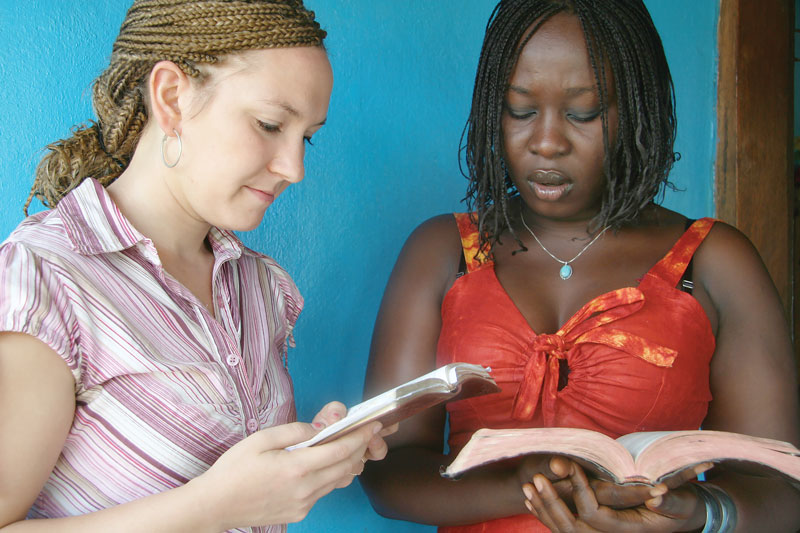1. People are not props. Everyone, at some point in life, has had a terrible day. Maybe their house burned down, their dog died or a family member was just diagnosed with a serious illness. Now imagine a stranger approaching, asking personal questions about what they are going through and taking pictures to show their friends. The people you meet on your travels deserve the same dignity and respect you would like to be shown. If someone’s house was destroyed in a storm, or they need food rations, or they are in the hospital, ask yourself: “If it were me, would I want this moment captured forever?” If you’re not sure, ask. If you can’t ask, choose to put the camera down. Use Philippians 2:3 as a benchmark.
2. Don’t focus on the bad. A mission trip often revolves around filling a particular need, but a problem arises when we only see people based on their needs—we miss out on the rest of their humanity. When we only recognize poverty, we reduce people to one characteristic that is often beyond their control. Find out more about the people with whom you are working. What are their favourite songs? What foods do they like? What makes them happy? Many trips involve telling people back home about your experiences. Although the reason you went should be the focus of your report, don’t only talk about the negative things you encountered. Pray over Acts 15:4.
3. Remember you are a guest. When going on a mission trip, you are being invited into the communities, and often homes, of local people. You are not only representing yourself, but also the church or organization that sent you. If you were to invite someone for dinner and they spent the entire time complaining or telling you how much better their life is, how likely is it you’d want them to come back? The key is to listen more than you speak. Sit back and observe. Be generous, yet sincere, with your compliments. While abroad, you are an ambassador for all Canadians, so behave as such. Remember 2 Corinthians 5:20.
4. God is God. One of the most dangerous aspects of a mission trip—a byproduct of a colonial past—is to go with the mindset that it is your job to convert people. If it’s your personal mission to bring Jesus to Africa, South America or the Carribean, you are bound to be disappointed. He is already there and already at work. Those best equipped to spread the gospel tend to be locals who understand the language, culture and customs. Church may look different from what you are used to—including, but not limited to, four-hour meetings, incense and traditional songs—but if you quiet your heart and mind you will recognize the presence of the Holy Spirit. Instead of going with the thought of converting people, focus on making connections with other believers. Pray together. Share meals together. Open yourself to the thought that just because someone worships God in a different way, it doesn’t make their relationship with him any less powerful. Meditate on the promise of Acts 1:8.
Hebrews 13:16 says, “And do not forget to do good and to share with others, for with such sacrifices God is pleased.” Not only is God pleased, but giving of ourselves also builds us up individually. Isaiah 58:10 claims, “If you spend yourselves in behalf of the hungry and satisfy the needs of the oppressed, then your light will rise in the darkness, and your light will become like the noonday.” Whether travelling abroad on a mission trip or volunteering with a charity at home, helping others is a holy act. Remembering the dignity and worth of others while doing your good work, however, will ensure you are engaging with the right mindset and an open heart.
Darryn Oldford is a senior soldier in Toronto.
Photo: adl21/E+ via Getty Images










Leave a Comment